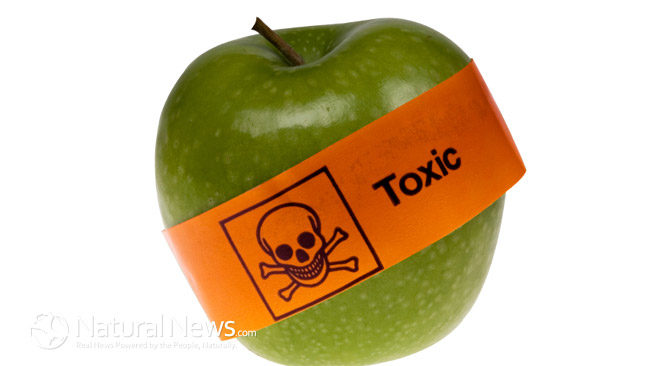Say No to the GMO
No Governmental Regulations
Without governing regulation laws concerning the labeling of GMO foods, it is difficult to determine a plan of action when it comes to arming oneself against mysterious, lab created foods known as Genetically Modified Organisms or abbreviated GMO’s. If you are anything like me, you will want the facts before you buy anything, and are cautious and suspicious of any product, food or beverage that doesn’t come with a life sustaining guarantee. With virtually no mandated governmental control on the regulation and safety of Genetically Modified Organisms, one must take matters into his own hands when it comes to selecting, evaluating, and researching foods for the potentially harmful GMO gene. This article will focus on steps you can take as an informed consumer to protect yourself and your family against the sneaky dangers of GMO consumption as well as provide resources for further research.
“Monsanto should not have to vouchsafe the safety of biotech food.
Our interest is in selling as much of it as possible.
Assuring its safety is the FDA’s job.”
– Philip Angell, Monsanto’s director of corporate communications
Major GMO pushing corporations like Monsanto point fingers at the Government claiming it is their job to ensure the safety and regulation of such trait altering microorganisms as demonstrated in the above quote. However, the USDA (Government) is counteracting this claim stating that GMO safety is the food producers’ ultimate responsibility. So who wins here? Clearly there is a battle going on and we the consumers are stuck smack dab in the middle. No one at this moment is going to protect our safety and well-being when consuming these so called beneficial “Frankenfoods” as touted by many multinational corporations like Monsanto, so it is up to us, the consumer to take ultimate responsibility for our own health and well-being; when it comes to consuming whole, healthful products designed to be nutritious, delicious and nourishing from the inside and out.
Read your labels
“You can do very, very well by reading labels and knowing what to look for.” (Source: The Non GMO Project, pg. 83). As a food shopper studying the art of healthy eating, you can never go wrong with foods that are sponsored by Non GMO and Certified Organic Organizations. Such organizations like the NON GMO Project and USDA Organic Certification keep the public in the light on which foods have been tested, modified and certified for Non Gmo consumption and food safety. By sticking to a diet regime that includes food and drink certification, one is almost sure they are doing their body and health good by giving it sustainable, whole products that are GMO and additive free as possible.
GMO Testing
Testing for GMO’s range from simple to complex; often designed in the form of a stick indicating potential GMO toxicity percentage and when dipped in a solution made with a powdered crop. This form of testing, along with rigorous tracking systems, sampling and third party inspecting are all required for effective safeguarding against GMO’s on the part of food, cosmetic and personal product manufacturers (Smith, 2005). So when deciding between products always look for food and produce labels that have been certified and tested by popular GMO free and Organic organizations such as The Non GMO Project and Certified Vegan Org. These are the organizations that label manufacturer’s effectiveness when avoid GMO usage.
Grow your own foods!
It’s almost impossible to rule out GMO free in foods and drink unless one creates it entirely from scratch. By definition, scratch means to grow your own food and make your own foods entirely by hand, without the use of any store bought processed foods or containing any ingredients that are pre-made. For example, canned tomato sauce, “specially” flavored soup broth or “minimally processed” frozen chicken are all examples of foods that have been manufactured by conglomerate GMO corporate pushers, thus likelihood of these foods containing harmful GMOS and other unknown preservatives are substantially high. By limiting or avoiding these foods all together when baking or cooking, you can greatly reduce the chance of consuming foods that have been genetically modified or spliced. Instead of margarine, use real 100% Butter, preferably organic. It may be high in calories, but at least it is real. Instead of pasteurized, go for natural. By growing your own fruits and veggies from your garden, your chances of producing a food and drink product free of GMO genetics are 100 percent because you are creating food that has been derived in its whole form all by itself and not mixed with “other” foods that may or may not have been treated with genetic contamination. Not to mention, overall, it just tastes better and feels better to know you have created your own yummy concoctions from nothing but the most natural sources with no added worry of GMOS invading your food possibly causing unknown health hazards and dulling of or depriving it of natural nutrients and taste; the way nature intended.
Saying no to the GMO
Not having governmental regulations on something as important as GMO contamination in our food can be a scary thing. However, with proper knowledge, one can protect themselves from such hazards by knowing what to shop and how to prepare the foods they consume. By looking for proper food labels signifying proper GMO testing, growing and cooking from scratch, avoiding accidental GMO consumption is as easy as one, two three.
Works Cited
John Fagan, Robinson, Clair. 2012. GMO Myths and Truths. www.earthopensource.org. p 23 version 1.3.
Jeffery M. Smith. 2005. Protecting yourself from genetically modified foods. Total Health Holdings, LLC. Vol 27.
The Non GMO Project Website:
www.nongmoproject.org
United States Department of Agriculture:
www.usda.gov
Sources for further reading
Conan, Kerri. 2003. The top 7 things that matter on the food label. Health Magazine.
Yacoubou, Jeanne. 2006. Vegetarian labels and what do they mean? Vegetarian Journal.





